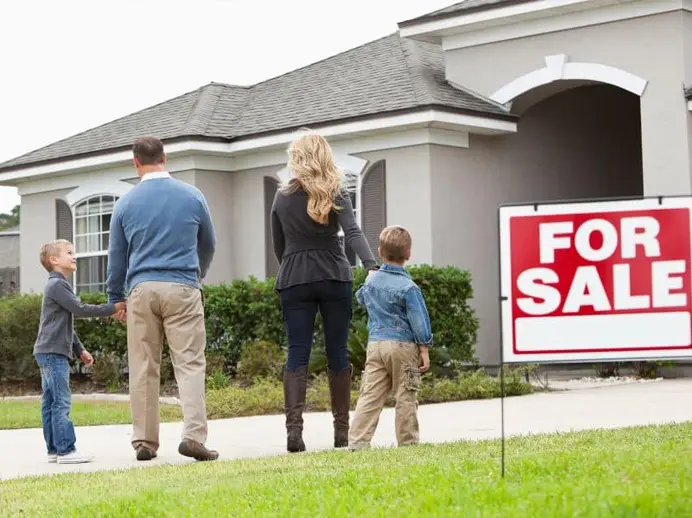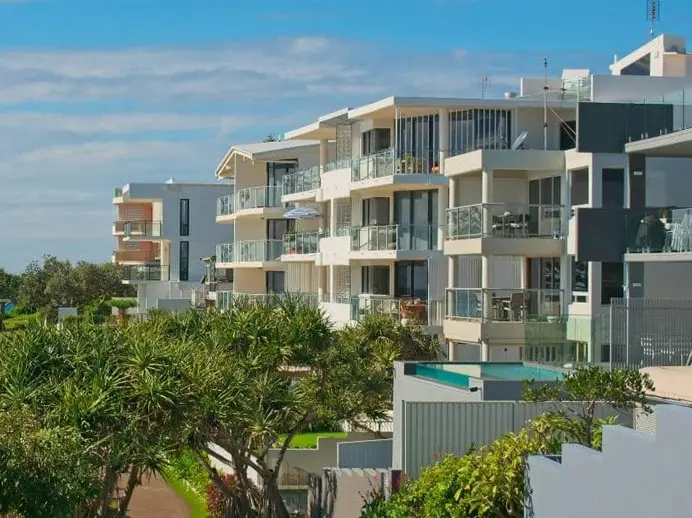12 April, 2019
Body Corporate, Articles
What You Need to Know About the New Cladding Laws in Queensland

In 2018 this resulted in the Building and Other Legislation (Cladding) Amendment Regulation 2018 (Qld) coming into effect on 1 October 2018. The legislation and it's operation is a data collection strategy which will recognise and evaluate the risks involved with cladding products on privately owned buildings in the state of Queensland.
There are a number of obligations under the legislation in which building owners (i.e. Bodies Corporate) need to be aware. These obligations and timeframes are outlined below.
Stages and obligations
Stage 1: Buildings must be registered if they are located in the 'compliance zone'. A building is considered to be in the compliance zone if:
- It is any of classes 2 to 9 (this includes residential and commercial buildings, excluding houses); and
- between the period from 1 January 1994 but prior to 1 October 2018, a building development approval was issued to build the building or alter the cladding;
- is of Type A or B construction (three storey buildings or taller).
A checklist can be found through the Queensland Building and Construction Commission (QBCC) website and will help to determine whether the building is one of those with non-conforming cladding. A time limit of 29 March 2019 was set for building owners to complete this checklist. If after registration it is identified that the building has a rendered surface finish or combustible cladding or you are unsure of the building materials, you will be directed to complete Stage 2.
Stage 2: Before 29 May 2019, a statement will be required from a building industry professional as to whether the cladding on the building is non-conforming. If you know for a fact that the building has non-conforming cladding, you can simply notify the QBCC directly and by-pass Stage 2.
Stage 3: Before 27 August 2019, buildings which are found to have combustible cladding, building owners must engage a qualified fire engineer to undertake a fire risk assessment to determine the overall fire safety of the building and whether rectification works are needed. The QBCC requires the name of the specific fire engineer by the above date and by 3 May 2021, the QBCC must have received the final report. If you fail to follow these rules, the consequences include a total range of 50 and 165 penalty units, amounting to around $6,527.50 and $21,540.75 in fines.
Obligation to disclose
If a building has non-conforming cladding, it does not necessarily have to be removed if other fire safety mechanisms adequately cover the fire safety requirement. However, the risk that it could still be considered a defect is an issue. A building with non-conforming cladding must be disclosed to interested buyers of the property as a defect they should be aware of. This should be done via providing a copy of the status of compliance with the process outlined above to every owner and tenant of the building, as well as be put on view in a visible area of the building. In the instance that non-conforming cladding is not disclosed, the situation might result in litigation for non-disclosure against all those involved with the selling of the building, including the sellers themselves, the sales agents and the lawyers involved with preparing the contracts for sale.
If an owner of building with non-conforming cladding sells the building prior to completing the above steps, it is required that before the settlement, the current owner provides copies of all relevant documents to the buyer, as well as a notice containing information about the extent to which the seller has complied with the obligations required. The seller must also provide a copy of the notice given to the buyer to the QBCC. From then on, the new owner will take on the responsibility to conform with the remaining regulations.
If you have any questions in relation to the obligations of the Body Caporate or the building owner to comply with this legislation, please do not hesitate to contact our Gold Coast lawyers.
Our Services
Property
Buying, selling or leasing? OMB Solicitors can help you today with all your property law needs.
All Property Services
Business Law
No matter what your business law issue is, OMB Solicitors have a wealth of experience across an array of commercial law practice areas.
All Business Law Services
Wills & Estates
Is your estate plan safe from litigation? Is your will up to date? Who will make decisions for you if you can’t?
All Wills & Estates Services
Family Law
Separated or contemplating separation? Considering a property settlement? OMB Solicitors can help you today with all your family law matters.
All Family Law Services
Body Corporate
Need body corporate advice? Look no further! At OMB Solicitors we are experts in all matters relating to strata and bodies corporate.
All Body Corporate Services
Litigation
OMB Solicitors have an expert team of litigation lawyers to assist in not only litigation, but also exploring other ways of resolving disputes.
All Litigation Services
Insurance
OMB Solicitors’ experienced insurance lawyers are on hand to assist with your insurance law matter.
All Insurance Services
